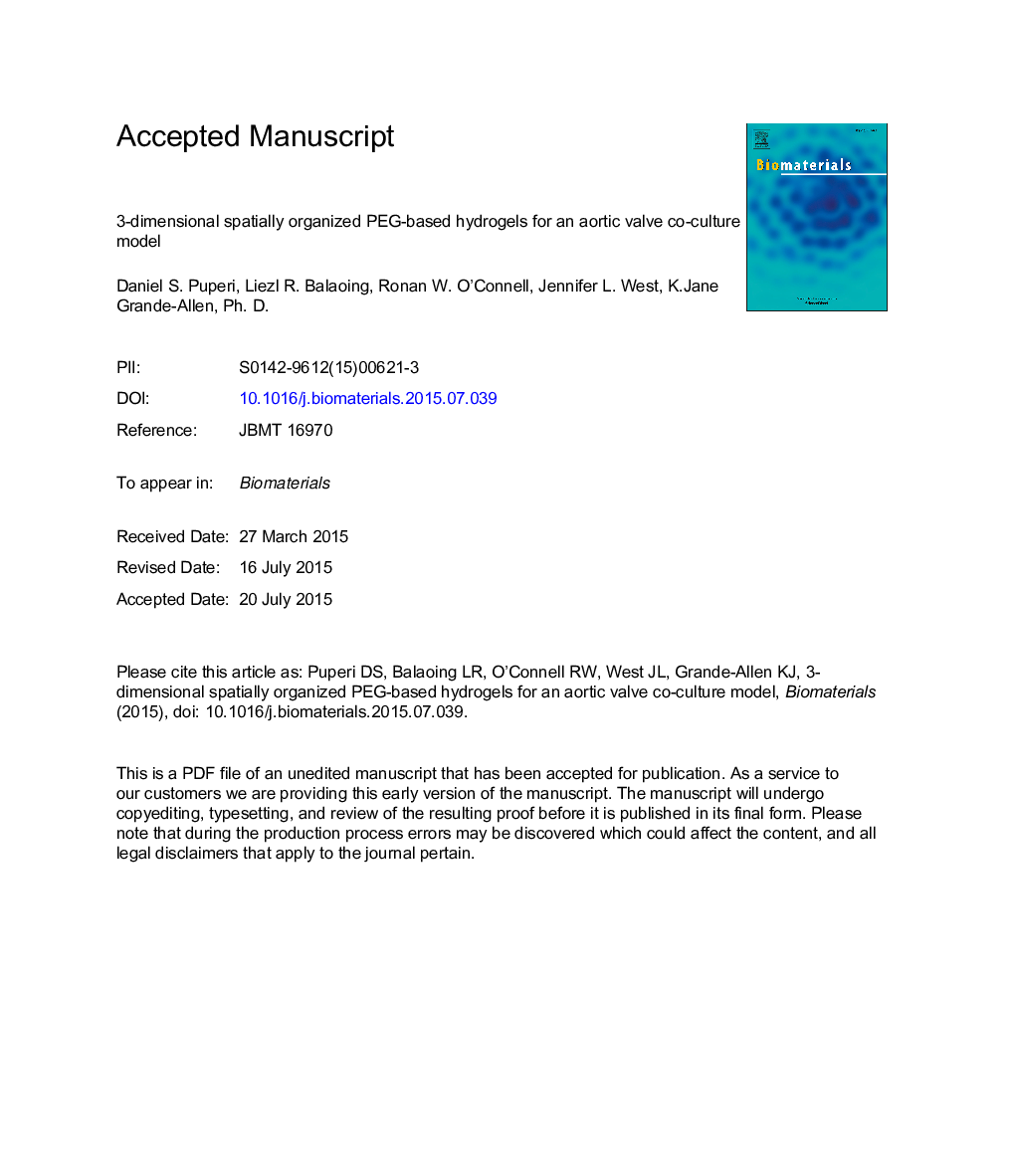| Article ID | Journal | Published Year | Pages | File Type |
|---|---|---|---|---|
| 6485473 | Biomaterials | 2015 | 42 Pages |
Abstract
Physiologically relevant in vitro models are needed to study disease progression and to develop and screen potential therapeutic interventions for disease. Heart valve disease, in particular, has no early intervention or non-invasive treatment because there is a lack of understanding the cellular mechanisms which lead to disease. Here, we establish a novel, customizable synthetic hydrogel platform that can be used to study cell-cell interactions and the factors which contribute to valve disease. Spatially localized cell adhesive ligands bound in the scaffold promote cell growth and organization of valve interstitial cells and valve endothelial cells in 3D co-culture. Both cell types maintained phenotypes, homeostatic functions, and produced zonally localized extracellular matrix. This model extends the capabilities of in vitro research by providing a platform to perform direct contact co-culture with cells in their physiologically relevant spatial arrangement.
Related Topics
Physical Sciences and Engineering
Chemical Engineering
Bioengineering
Authors
Daniel S. Puperi, Liezl R. Balaoing, Ronan W. O'Connell, Jennifer L. West, K. Jane Grande-Allen,
